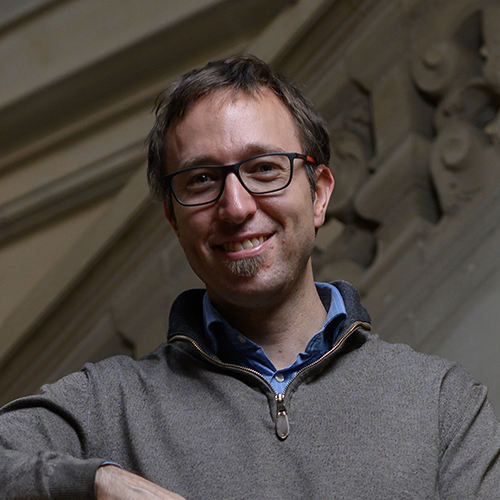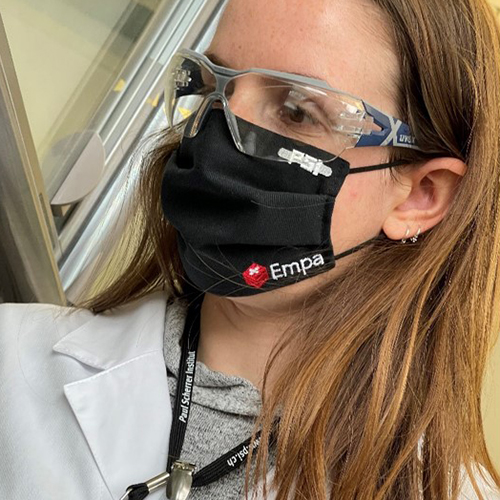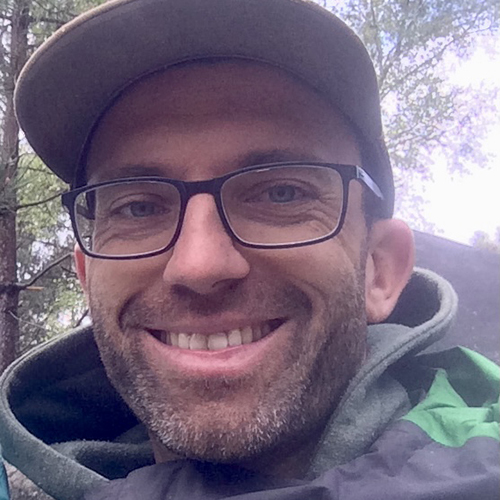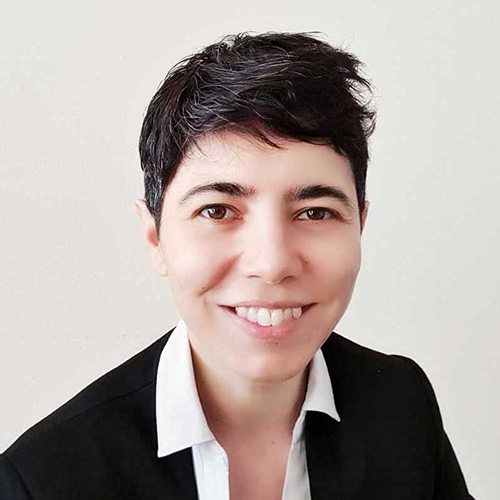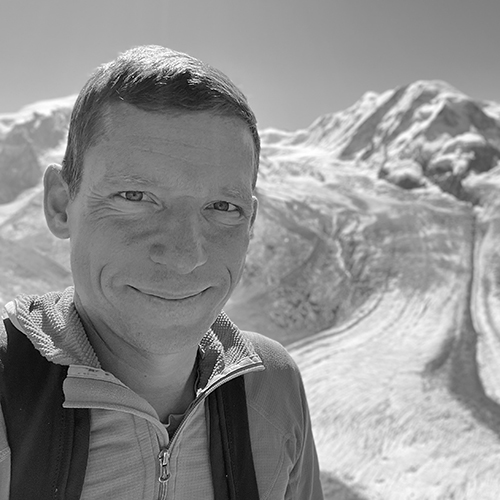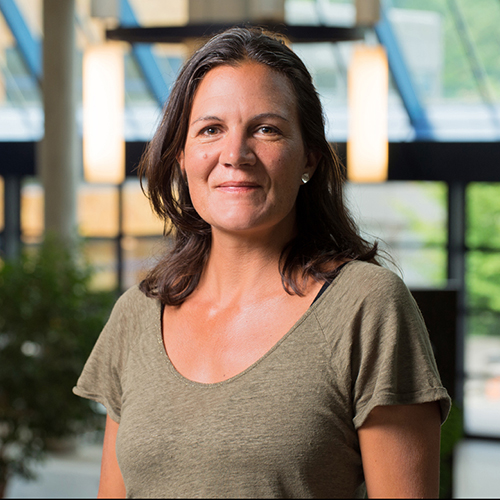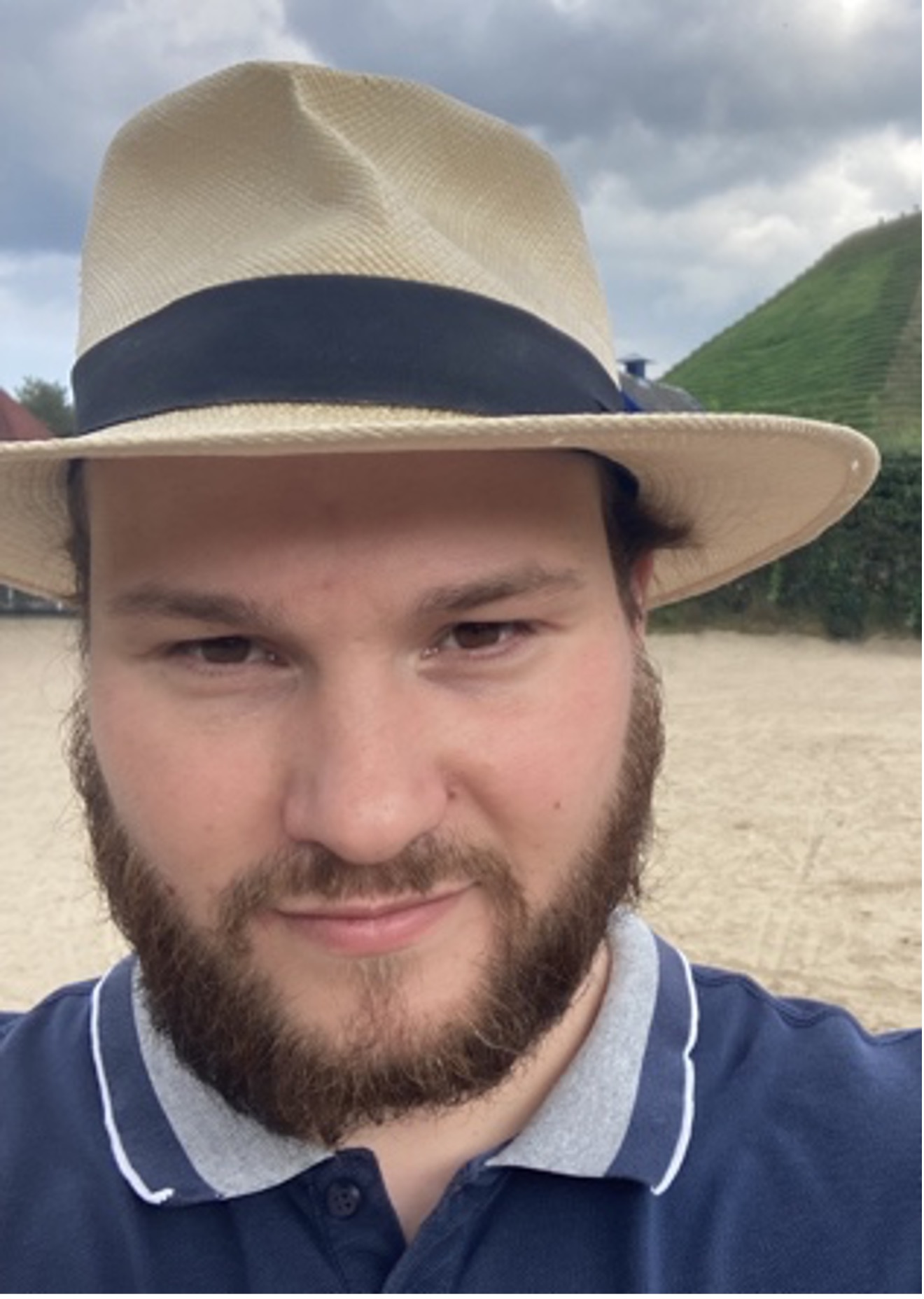Career Prospects
Within the framework of the work of the UNIL Commission consultative de la Relève, the Faculty carried on a reflections between 2019 and 2021 and delivered the « Relève » action plan below, validated by the Direction’s Commission. An evaluation of this plan is scheduled for spring 2023.
Plan d'action relève FGSE (1392 Ko)
Engagement des premier·e·s assistant·e·s
15 mars 2019
Portraits of our former doctoral students and postdocs
These former FGSE members share their thoughts on their career choice. Planning, serendipity or contingency, how do they look back on their career and the know-how they acquired at the FGSE? What are their aspirations?
Dr Jérémie Sanchez worked at the Institute of Geography and Sustainability (IGD) on an ambitious topic: environmental governance in Burma. Today at the Haute École Pédagogique Fribourg, he is a quality manager, a position he manages to shape according to his interests: staying on top of scientific advances.
« What I learned at the FGSE now serves as an ethical guideline in my work »
Dr Julien Leuthold is currently a scientific advisor at the Swiss National Science Foundation. At the same time, he is committed to the sharing of knowledge as president of the Société Vaudoise des Sciences Naturelles. He thus pursues his concern for excellence and his passion for “extraordinary places”..
« I’ve stepped into the other side of the mirror. »
Dr Lily Bossin is since 2020 Deputy Head of the Dosimetry Group at the Paul Scherrer Institute PSI. After a post-doctorate at the Institute for Earth Surface Dynamics (IDYST) and a thesis in Durham, she is leading a team in luminescence dosimetry.
« I would like to continue developing instruments that can have applications »
Dr Battista Matasci obtained his PhD in Earth Sciences at the Institute of Earth Sciences (ISTE) of the Faculty of Geosciences and Environment of UNIL in 2015. He is currently a geologist with a geological and environmental engineering firm in Aproz, Valais.
« The doctorate has given me the opportunity to continue with scientific studies, which are useful to me on a daily basis in my current work. The fact that I did apply research during the PhD automatically prepared me for the job market. »
Dr Paola Rattu obtained her PhD in Geography at the Faculty of Geosciences and Environment (FGSE) of UNIL in 2015. She has been working for the Swiss Confederation since 2020 as head of digital education at the Federal Office of Police (fedpol) and has created her own educational consulting company, Rattu Consulting.
« During my PhD, I sought out involvement in teaching, both out of interest and to have a way out once my thesis was finished. »
Dr Théodore Besson Throughout his career, Théodore Besson has combined research and entrepreneurial activity. His PhD, defended in 2022 at IDYST, concludes a work at the interface of these two worlds, aiming to create synergies between space development (preparation of manned flights to Mars), and "terrestrial" research on related topics. A fascinating and difficult innovative mission that required tenacity.
« My thesis, originally very conceptual, was associated with the actual preparation of human space exploration missions to Mars. An opportunity for mutual fertilization with the many associated terrestrial problems. »
Dr Caroline Wilhem works as an Adjointe aux affaires institutionnelles et à la recherche at the University of Lausanne. After a PhD in geology and a postdoctorate, she decided to invest herself in the support and valorisation of research. She is committed to promoting the diversity of research practices and the "democratization" of science and to breaking down of barriers between disciplines.
« I am convinced of the value of the research support mission for institutions, individuals and society »
Dr Mathieu Gravey is currently Junior Group Leader at the Austrian Academy of Sciences, following a thesis at the Institute of Earth Surface Dynamics. His curiosity and skills in programming and computer science enable him to develop ambitious transdisciplinary projects, juggling mountains of satellite data.
« My strength is to doubt. About everything »
Dr Tristan Loloum is currently Associate Professor of Social Work and Energy Transition at the Haute Ecole de Travail Social (HESTS). He explains us his commitment to environmental justice in his teaching and research. It's a theme he tackled extensively in his thesis.
“How can we make the energy transition more equitable?”
Dr Fabienne Dietrich is a specialist in soils, the habitats where so many elements essential to life on Earth pass through and interact. After a thesis on soils in Cameroon at the Institut des dynamiques de la surface terrestre (IDYST), followed by a post in Master's coordination, she returned to her favorite subject by focusing on the soils of the Canton of Vaud, whose protection is a crucial milestone in our food security.
“I'm back to my first passion: soils”
What are the different career opportunities?
After a doctoral and postdoctoral research experience, a wide range of paths exist. The following are examples of the types of positions and functions that are open to people who have performed research tasks in GSE. This list, which is not exhaustive, is primarily concerned with the non-academic field, which is often less known to young researchers.
- of services, research/R&D program, governance
- of collaboration/innovation promotion programs
- of training (curriculum, program)
- of scientific mediation/communication services
Fields: environment, mobility, land use planning, regional policies, risk prevention
Sectors: public, private, NGO, international
- statistical modeler, data-driven modeling
- data scientist
- specialist in machine learning
- GIS analyst
- geoinformatician
- software and application developer (software engineer)
Sectors: public, private, NGO, international organisations
- laboratory head manager, laboratory expert/technician
- scientific consultant, project manager (assessment, planning and implementation)
- engineer, technical solution developer
- system developer, process designer
Fields: hydrology, geology, land use, mobility, construction, disaster risk reduction
Sectors: private (engineering office, design office), public (municipalities, administration)
- teacher/trainer, guide
- secondary I and II teacher
- professor of university or college
- mediator, scientific communication officer
- curator of exhibitions and collections
- project manager for events
- scientific illustrators
Sectors: private and public (training and research institutions, museum...), association, NGO, international organisations
- Open Science coordinator
- data curator (documentation, data organisation, sharing and archiving)
- research data advisor (promotion of ORD practices)
- librarian, scientific documentalist, liaison librarian/specialist advisor, documentary information specialist (advice and support on literature and scientific publications)
Sectors: public (universities or higher education institutions, research centres…)
- analytical support (bioinformatics, data visualisation, task automation)
- support for publications and funding applications
- career support, support for young researchers (advice and mentoring)
- field instrument manager (support and management)
- field manager (support and management)
Sectors: public (universities or higher education institutions, research centres…)
- Public administration: federal offices (e.g. environment; statistics; education & research, MeteoSwiss, Swisstopo), cantonal offices (e.g. land and environment), municipalities
- Associations, foundations, professional societies (e.g. Swiss Association of Water Protection Professionals, Swiss Academy, Antenna Foundation)
- NGOs, international organisations (e.g. UNEP)
- Museums, botanical gardens
- Start-ups, private companies (construction, energy, urbanism, planning, mobility, biotechnology)
- Engineering and consulting firms (ecology, geology, construction, energy, urban planning, mobility, archaeology)
- Scientific equipment companies, analytical solutions, software development
- Insurance companies (e.g. ECA)
- Funders, Foundations (e.g. SNSF)
- Universities or Colleges
- Research centres (e.g. Agroscope, Swiss Data Science Center)
- Research institutes (e.g. CREALP, Paul Scherrer Institute)
Career support: to go further
At the FGSE, you will find information and career advice, offers and training on You are researcher > Career and training.
The UNIL Graduate Campus offers workshops and networking events, as well as individual coaching for the career development of UNIL scientists.
Consult its career guide entitled Beyond the doctorate and discover the testimonies of UNIL doctoral students.
The UNIL Doctorate Holders Career Survey from the Graduate campus
Survey of career trajectory of FGSE postdocs
The career of FGSE postdocs was analysed in February 2022 thanks to public data collected on the internet (online professional social networks, employers' websites, PhD databases,...). These analyses include 191 postdocs (110 1st assistants, 42 FNS Senior researchers, 8 Ambiziones, 31 Lecturers, between 2003 and 2022).
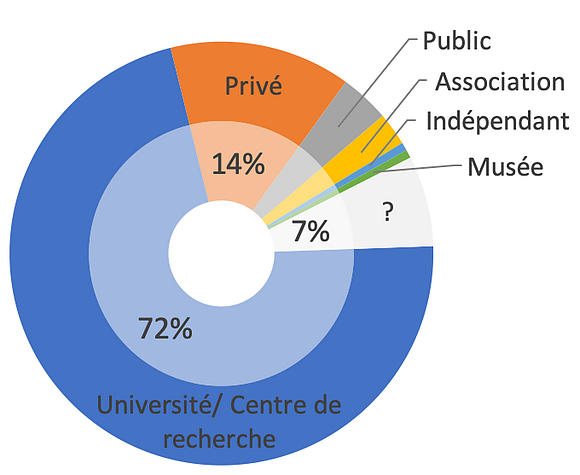
Sector of activity : A significant proportion of postdocs work in academia after their research stay at the FGSE. 72% work in a university or research centre.
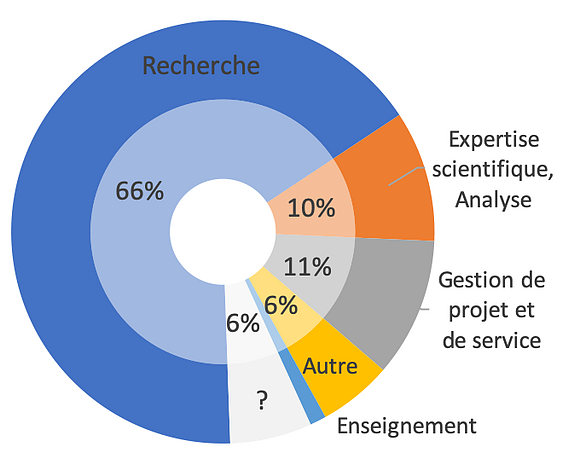
Type of position: 66% of former postdocs obtain a research position in Switzerland or abroad. Those who do not pursue research are working as scientific experts (e.g. in consultancies or laboratories) or as project and service coordinators (e.g. in federal, cantonal or municipal offices).
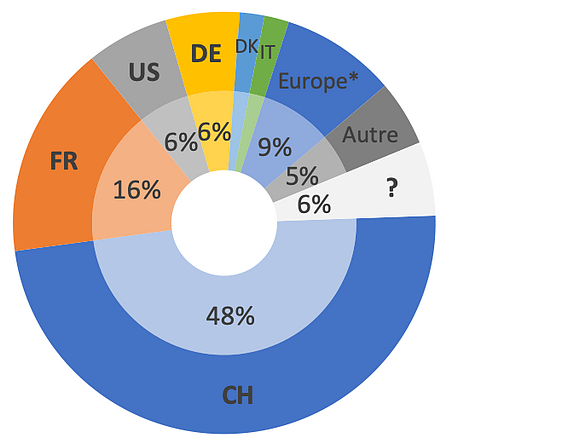
Country of activity: All activities taken together, half of the ex-postdocs of the FGSE carry out their professional activity in Switzerland (48%). 35% are elsewhere in Europe (including 16% in France and 6% in Germany).
Are you a former member of the FGSE and want to stay in touch? Do you have a testimonial? Would you like to know more? Contact our team at the FGSE deanship!



